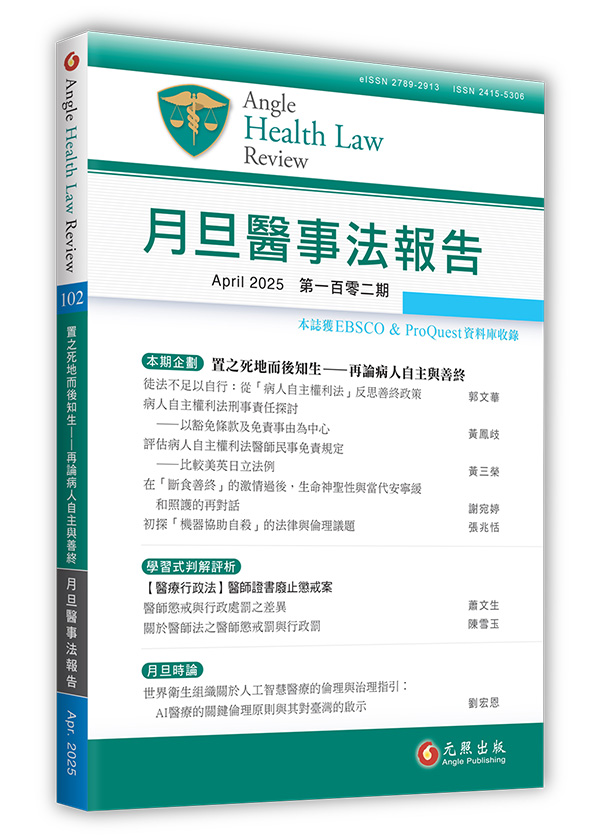初探「機器協助自殺」的法律與倫理議題【本期企劃】 試閱
A Preliminary Analysis of the Legal and Ethical Issues of “Machine-Assisted Suicide”
醫師協助自殺或安樂死在許多國家或地區走向合法化,但並非等同於人人皆能夠藉此選擇積極結束生命,個人可能因為不具備一定臨床條件、決定能力有缺陷,或是無法負擔費用,而無法尋求醫師協助自殺或安樂死,醫事人員亦得基於醫療倫理而拒絕執行。Sarco膠囊艙的問世,提出機器協助自殺的新模式,透過程序的去醫療化與低費用,為人們提供另一個行使生命自主權的方式。本文對此進行規範上的回顧,發現各國多有現行法架構難以規範Sarco的挑戰,此外在倫理上,也從個人生命自主權、機器決策,以及照顧的角度加以分析。
Physician-assisted suicide and euthanasia have been legalized in various countries and regions, yet this does not mean that everyone can proactively choose to end their life through these means. Individuals may be ineligible due to the absence of a qualifying clinical condition, impaired decision-making capacity, or financial constraints. Additionally, medical professionals may refuse to perform these procedures by referring to conscientious objection. The emergence of the Sarco Pod introduces the new model of machine-assisted suicide, offering an alternative means of exercising autonomy over one’s life by removing the medicalization of the process and lowering costs. This paper reviews the regulatory challenges posed by Sarco Pod, finding that many countries face difficulties in adapting their existing legal frameworks to address this technology. Furthermore, it explores ethical considerations from the perspectives of individual autonomy to life, machine decision-making, and the relevance of care.
057-070






